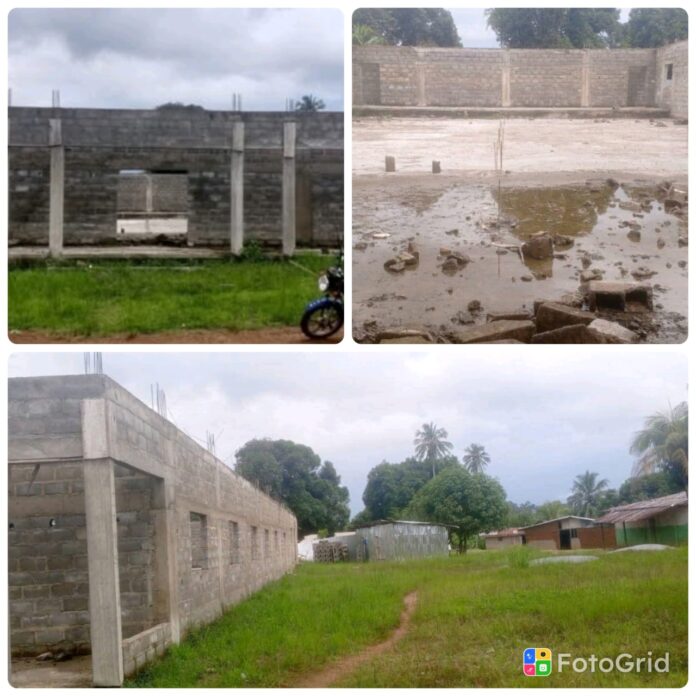FISH-TOWN, River Gee County – The halted construction of the $650,000 Fish-Town City Hall has become a symbol of the wider governance and infrastructural setbacks confronting River Gee County, exposing deeper issues of accountability, project continuity, and decentralization in Liberia’s post-election political landscape.
Launched in March 2023 under a presidential infrastructure initiative, the project aimed to create a central hub for government services in Fish-Town, enhancing civic engagement and administrative coordination in one of Liberia’s most underserved regions. The Liberia Agency for Community Empowerment (LACE) was tasked with implementing the project, which was set to become a cornerstone of the county’s urban development agenda.
However, barely a year and a half later, construction has ground to a halt, leaving behind an unfinished structure and rising public frustration. According to local sources, the abrupt cessation of work was linked to financial mismanagement, weak oversight mechanisms, and political shifts following the defeat of former President George Weah in the 2023 general elections.
Residents say the abandoned site reflects a disturbing trend in Liberia where government projects often stall due to changes in political leadership or lack of sustained commitment from successive administrations.
“We require transparency and accountability from our leaders. The residents of Fish-Town deserve a city hall that aligns with our ambitions and aids our progress,” said Patrick Weah, a youth representative, during a community meeting last week. His sentiments echo the disappointment of many in the area, who view the failed project as both a missed opportunity and a cautionary tale of poor public sector management.
While some government officials argue that the transition period between administrations has delayed funding flows and disrupted infrastructure timelines, critics point out that the issue runs deeper. They argue that weak institutional continuity, insufficient citizen oversight, and the politicization of development projects have long plagued Liberia’s public works landscape.
River Gee County Superintendent Mike Swengbe acknowledged the gravity of the situation but maintained a hopeful tone. “We are dedicated to finding a solution,” he said. “Though the setback is discouraging, we remain hopeful that, with joint efforts, we can realize our vision for a city hall.”
Yet Fish-Town City Hall is not an isolated case. Other incomplete government projects across the county—such as the County Executive Guest House, the stalled 14th Judicial Circuit Court, and the abandoned Tienpo and Glarro administrative compounds—paint a broader picture of systemic breakdowns in project delivery.
Analysts say these failures reflect a need for stronger project monitoring frameworks, depoliticized budgeting processes, and inclusive local governance models that allow communities to hold implementing agencies accountable.
The Fish-Town City Hall, once envisioned as a beacon of modernization, now stands as a cautionary monument to what happens when political will, financial stewardship, and community trust fail to align. As local leaders scramble to revive the project, they face mounting pressure to not only complete the structure but also to restore public confidence in the state’s capacity to deliver on promises.



